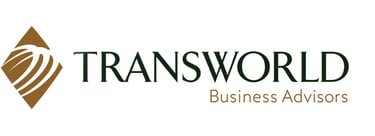Why Busy Healthcare Professionals Need Brokers for Acquisition Opportunities?
Busy healthcare professionals depend on skilled brokers to secure stronger acquisition opportunities, reduce risk, and streamline complex medical business deals.
11/17/20256 min read


Busy healthcare professionals operate in an environment where time is scarce, responsibilities are extensive, and decisions carry significant consequences. When the intention shifts toward evaluating acquisition opportunities—whether it involves medical practices, specialty clinics, multi-location groups, or ancillary healthcare entities—the complexity escalates. Many turn to medical business brokers for early support because they face constraints that make it nearly impossible to manage acquisitions independently without compromising quality, due diligence, or negotiation leverage.
Healthcare professionals juggle demanding patient schedules, administrative obligations, compliance responsibilities, research commitments, and personal time. Adding acquisition work on top of that can derail focus, create unnecessary stress, and increase the risk of unfavorable terms. A broker becomes not just a transactional facilitator but a strategic counterpart who absorbs the heavy workload, protects the buyer’s position, and opens access to opportunities that otherwise remain hidden.
Why Busy Healthcare Professionals Cannot Approach Acquisitions Alone?
Acquiring a healthcare business differs sharply from buying a traditional commercial operation. The complexities embedded within regulated environments, staffing structures, payer relationships, referral pipelines, and patient retention models require a level of experience that only specialized brokers possess.
For time-constrained professionals, these challenges multiply because acquisition steps involve deep analytical work and precise management. What appears simple on the surface—evaluating financials, visiting locations, or negotiating price—quickly becomes a demanding process encompassing hundreds of moving parts.
Time Constraints That Make Independent Acquisitions Impractical
Healthcare roles require significant mental and physical bandwidth. The day’s schedule may include patient care, charting, consultations, procedures, telehealth appointments, administrative discussions, and coordination with ancillary providers.
Adding acquisition responsibilities creates unsustainable pressure. Even highly experienced buyers frequently misjudge the workload associated with:
Reviewing financial statements
Evaluating quality metrics
Assessing compliance history
Studying payer contracts
Conducting market analysis
Inspecting facilities
Examining referral relationships
Communicating with sellers
Each phase demands uninterrupted focus—something busy healthcare professionals rarely have.
A specialized broker takes on this workload and integrates only essential updates, allowing the buyer to remain fully present in their professional duties.
Access to Off-Market Healthcare Acquisition Opportunities
Many of the best healthcare acquisition opportunities never reach public listing platforms. They circulate through private networks consisting of industry contacts, retiring physicians, growing groups, investment-backed healthcare entities, and professional advisors.
Healthcare buyers often struggle to locate these opportunities independently because sellers prefer confidentiality and targeted outreach rather than broad advertising.
Brokers maintain private channels with:
Physicians preparing for transition
Owners who prefer confidential exit pathways
Multi-clinic groups restructuring their assets
Investors divesting specific divisions
Facilities seeking mergers before public announcement
Without this network, healthcare professionals would miss out on a large portion of the strongest, highest-quality acquisitions.
The Complexity of Valuing a Healthcare Business
Valuation in healthcare is uniquely intricate. It incorporates financial performance but also intangible components that general accountants cannot always measure accurately.
A broker assesses:
Revenue stability
Patient volume patterns
Payer mixes
Staff productivity
Provider compensation alignment
Equipment lifecycle
Lease conditions
Referral stability
Market saturation levels
Untapped service opportunities
These variables influence profitability, long-term viability, and overall investment value. For busy healthcare professionals, conducting this level of analysis without experience creates a high risk of overpaying or misjudging a practice’s potential.
Regulatory Challenges That Require Specialized Handling
Healthcare acquisitions require precise navigation through multiple regulatory areas. Even minor errors can trigger delays or legal complications.
Critical compliance factors include:
Credentialing requirements
Billing accuracy
HIPAA expectations
Security of patient data
Contractual obligations
Liability protection
Payer enrollment timelines
A broker coordinates these elements with attorneys, accountants, and practice administrators to ensure compliance stays intact from the first conversation through post-closing transition.
Busy healthcare professionals rarely have the time or bandwidth to manage regulatory oversight alone, which makes a broker’s involvement crucial.
Negotiation Dynamics Favor Professionals With Experience
Negotiations within healthcare acquisitions are more intense than most buyers anticipate. Sellers protect their legacy, physicians defend their patient base, and administrative teams advocate for continuity. Without expert representation, buyers may:
Pay more than necessary
Accept unfavorably structured terms
Agree to risky contingencies
Overlook liabilities embedded in contracts
Brokers negotiate with an objective, structured mindset that puts the buyer’s interests first. They anticipate counterstrategies, prepare responses, and secure terms aligned with financial and operational goals.
Busy healthcare professionals benefit significantly because the broker shields them from emotional overstepping and ensures disciplined negotiation.
Brokers Prevent Buyers From Entering Poor-Quality Deals
Not every acquisition is a strong opportunity. Some practices or healthcare assets may look attractive on paper but reveal significant weaknesses upon deeper inspection.
Brokers conduct due diligence audits that examine:
Revenue cycles
Billing inconsistencies
Outdated compliance policies
Pending legal issues
Operational inefficiencies
Staff turnover risk
Payment structure vulnerabilities
Facility limitations
This prevents the buyer from unknowingly purchasing liabilities that may require significant repair or financial investment after closing.
Busy healthcare professionals benefit from this safeguard because they cannot reasonably perform every detailed investigation on their own.
Stronger Deal Structure That Aligns With Long-Term Success
Brokers don’t only help during negotiations—they create a blueprint for how the acquisition should function both at closing and after transition. Deal structure determines the financial health of the acquired entity.
This may involve:
Earn-out terms
Transition expectations
Non-compete agreements
Revenue allocation models
Provider retention strategies
Payment timing
Equipment transfer clauses
Liability distribution
Well-structured deals prevent disputes, financial surprises, and misaligned expectations.
Healthcare professionals benefit because brokers build structures based on industry norms and proven strategies.
Reduced Emotional Stress and Professional Overload
Acquiring a healthcare business is both a financial and emotional decision. Buyers often feel pressure due to:
Fear of making a poor investment
Concern over staff reactions
Anxiety about financial risk
Attachment to a preferred location
Desire to expand faster
Worries about operational readiness
A broker becomes the stabilizing middle layer, absorbing conflict, separating emotion from logic, and keeping the process on course.
For busy healthcare professionals, this prevents burnout and ensures decisions remain functional, not emotional.
Transition Planning Support for a Smooth Takeover
A healthcare acquisition is not complete at closing. It requires a structured handover period where the new owner integrates into the facility, meets staff, navigates patient expectations, and updates administrative protocols.
A broker ensures:
Staff communications occur at the correct time
Technology transitions are implemented without disruption
Patient continuity remains stable
Payer enrollment is synchronized
Operational workflows remain uninterrupted
The seller fulfills the agreed transition obligations
Without this, the practice could experience turnover, patient reduction, or operational slowdown right after acquisition.
Brokers Expand the Buyer’s Perspective for Stronger Decision-Making
Healthcare professionals often approach acquisitions with specific preferences:
Certain specialties
Specific neighborhood locations
Defined patient demographics
Estimated revenue targets
However, brokers expand the buyer’s scope by presenting options that align with long-term goals rather than short-term assumptions.
Buyers may unexpectedly benefit from:
Alternative service lines
Multi-location models
Underserved markets
Practices with strong referral ecosystems
Facilities ready for expansion
This broader viewpoint helps professionals make smarter, scalable investment choices.
A Fresh Framework: What Brokers Provide That Healthcare Professionals Cannot Replicate Alone
Below is a simplified structure capturing the unique advantages brokers deliver:
Access to hidden and off-market opportunities
Precision valuation built on healthcare metrics
Negotiation leadership supported by industry expertise
Regulatory oversight that protects the buyer
Full management of due diligence
Deal structure optimized for long-term sustainability
Protection from overpaying or acquiring poor assets
Smooth transition planning
Time savings that allow the buyer to stay focused on care
Each element contributes to a safer, more strategic acquisition outcome.
The Acquisition Process Becomes a Shared Mission, Not a Burden
Busy healthcare professionals achieve better outcomes when the acquisition process becomes collaborative. Instead of carrying every responsibility alone, they gain a partner who ensures:
Every detail is reviewed
Every risk is addressed
Every opportunity is evaluated
Every communication is structured
This prevents chaos, confusion, and rushed decisions that can harm long-term investments.
Why Healthcare Professionals Benefit More Than Any Other Buyers?
Healthcare professionals face unique demands that make expert support essential:
Why the Need Is Higher?
Schedules leave little room for research
Acquisitions involve shifting from a clinical mindset to a business mindset
Compliance landscapes continually evolve
Payer environments change rapidly
Staffing shortages add additional risk
Errors in judgment can damage reputation or income
Because their time and attention are spread across so many priorities, they are more likely to benefit from the oversight and structure a broker provides.
Acquisitions Require Speed—But Also Accuracy
Opportunities in healthcare acquisition move quickly. Strong practices attract multiple buyers, investment groups, or regional networks. Delays can cause missed chances or price increases.
At the same time, rushing through analysis can lead to costly mistakes.
A broker helps the buyer maintain the perfect balance between fast action and responsible decision-making. They prepare documents, schedule walkthroughs, coordinate advisors, and keep communication lines active without sacrificing accuracy.
The Hidden Value: Peace of Mind
A successful acquisition is not only about financial growth. It is also about confidence, security, and clarity during a major professional transition.
Healthcare professionals frequently describe the process as overwhelming without experienced support. A broker brings organization, direction, and logical structure, which reduces unnecessary stress and keeps the buyer grounded.
Conclusion
Healthcare acquisitions require more than interest and capital—they require insight, industry-specific knowledge, and the ability to navigate layers of operational, financial, and regulatory complexity. Busy healthcare professionals excel in their clinical and leadership roles, but acquisitions demand time and precision that their schedules rarely allow.
Brokers eliminate guesswork. They expand opportunity, protect financial interests, streamline decision-making, and reduce risk. They become a partner in growth rather than a passive facilitator of paperwork.
For buyers who want strong outcomes, safer transitions, and strategic long-term positioning, a broker is not optional—it is foundational.


